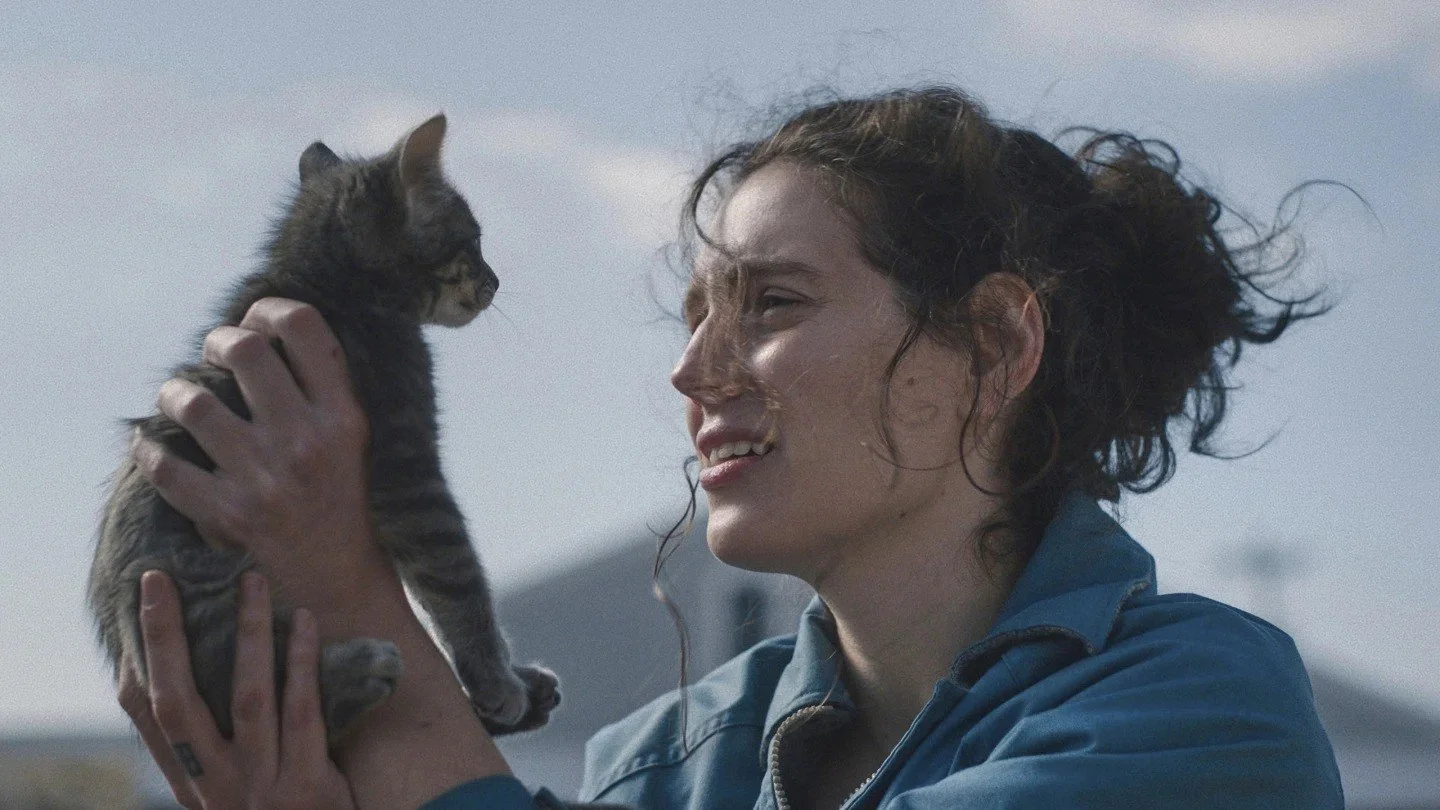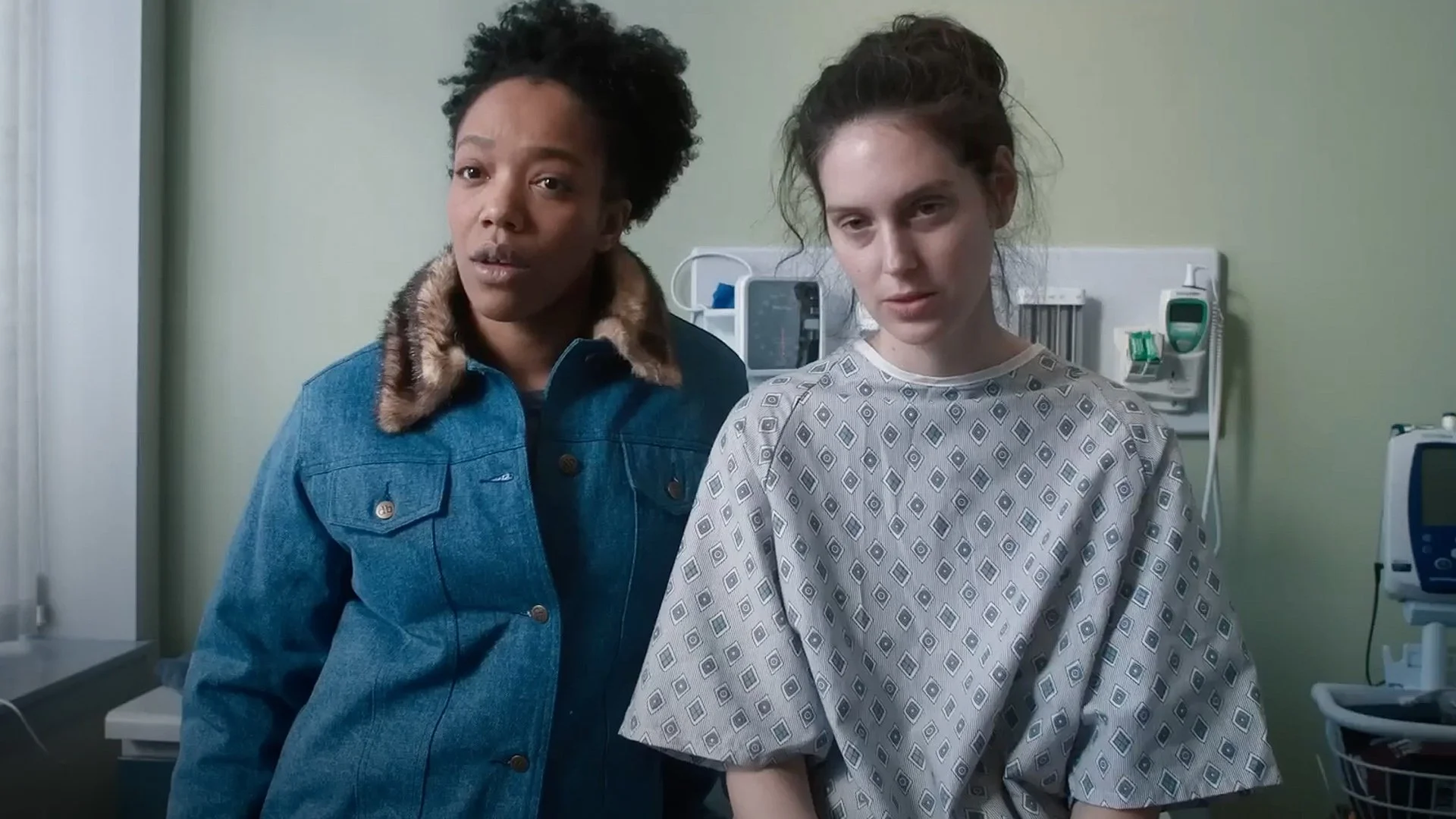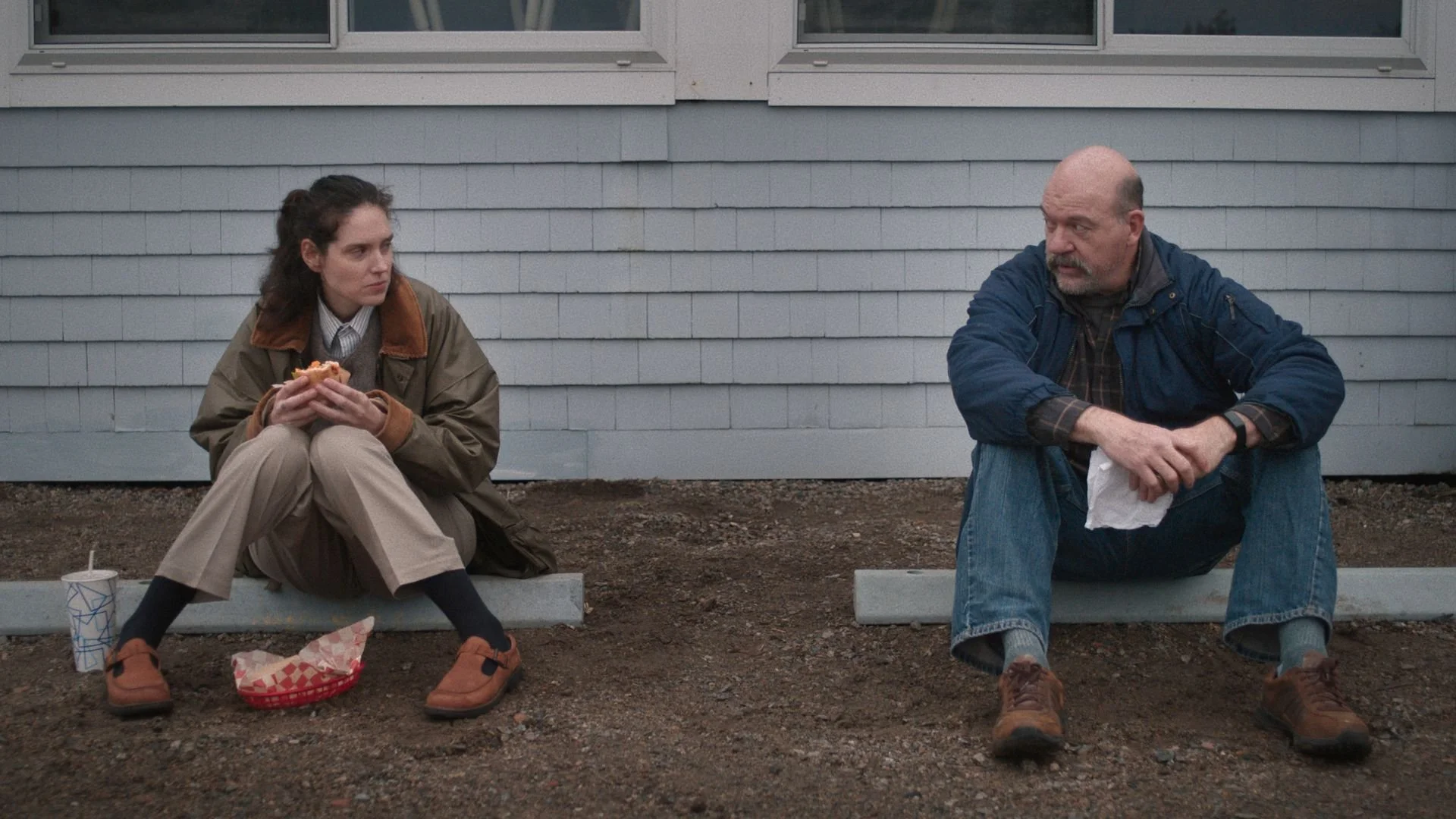Sorry, Baby Review: The Uplifting Potential of Connections and the Slow Burn of Trauma
Sorry, Baby is a phenomenal directorial debut from Eva Victor that follows the story of Agnes, a woman that we see is affected by trauma over the course of years. The film blends humor, heaviness, and humanity to discuss how trauma, loneliness, and suffering affect our lives in slow, quiet, and sometimes invisible ways. // Image: A24
In my years examining and reviewing media on this blog, I’ve often talked about how the best games, movies, shows, books, and stories are the ones that stick in your mind long after you’ve walked away from it. In many of my movie reviews, specifically, I’ve praised a lot of movies for depicting themes or telling their stories in specific ways that keep my thinking about them long after I’ve left the theater. Any media that stays in my mind and keeps me thinking about its themes and how well it realizes said themes are typically the most fun for me to talk about and the most inspiring for me to pick apart and understand.
It’s practically a badge of honor, in that case, that I feel a need to discuss my thoughts on Sorry, Baby, the latest release from A24, over a week after I’ve seen it. Much like what Agnes, the film’s protagonist, goes through herself throughout Sorry, Baby, it took me time to fully digest what I saw throughout this incredible film. Throughout the past week, I’ve reflected on certain lines characters say, how the film is structured, and what makes the film such an authentic, human depiction of trauma, anxiety, sorrow, and how these things influence how people live their lives.
The film structures itself over the course of multiple years, where we see a traumatic event happen to Agnes as well as the few years after such an event to study just how and to what extent Agnes changes how she interacts with others. Despite heavy subject matter, the film is interlaced with a believable sense of quirky humor that does a good job of adding realistic brevity to the way people process traumatic events while also not being too funny to the point where the comedy undermines the heart of the film.
The result is a remarkably tasteful and smart character study that constructs thoughtful commentary about hardship and its impact on our lives in a way that keeps viewers thinking about the film long after the credits roll. As I’ve discussed a lot in previous reviews, that’s a golden key to being among some of my favorite films, and that remains to be the case here. Sorry, Baby is among this year’s finest and stands as a necessary watch for those comfortable to have some laughs amidst some existential and trauma-induced anxiety and depression.
Content Warning: The remainder of this review discusses spoilers, including the film’s depiction of sexual assault.
Sorry, Baby is as thought-provoking of a character study as it is because of the incredible chemistry between its characters. Agnes (right, performed by Eva Victor) and Lydie (left, performed by Naomi Ackie) have a lovably transparent and vulnerable friendship that opens the door to some fantastic character moments, leading to an emotional core focused on how friendships and connections give us a reason to stay alive through the horrors we face in life. // Image: A24
“Please don’t die.” These are the exchanges made between grad school friends Agnes and Lydie as they exchange their goodbyes before Lydie needs to leave Agnes’ secluded house during the film’s first section, “The Year with the Baby”. Being confronted with concern from her friend, Agnes assures Lydie that if Agnes was going to kill herself, she would have done so in the few years leading up to this exchange. This immediately draws intrigue because, well, it’s a bizarre conversation to have, and yet it’s also one that feels like a darkly believable representation of friends that are aware of the struggles each other have faced. Throughout this first section of the film, we see Agnes and Lydie reunite with their former grad school classmates. At the table, there’s some relief to see where people have ended up in life along with some passive hostility that’s palpable through the restrained performances. There’s clearly pain and discomfort that goes unspoken throughout this dinner scene, but it builds upon the intrigue about what has happened in the relationships between these characters that has led to such a tense environment.
The first section of this film does a phenomenal job at illustrating complex emotions through restraint. Sorry, Baby builds a precedent of characters using humor, silence, and passive-aggression to show that characters don’t, or rather can’t communicate exactly how they feel. This naturally builds a mystery as to why the film’s characters - most crucially, Agnes - behave this way, along with an additional intrigue as to what would have caused to most likely kill herself years prior. This intrigue propels Sorry, Baby into its narrative structure, which showcases different years in Agnes’ life. We effectively begin at modern day and flashback to a couple years prior to when Agnes is still in grad school, naturally inviting an anxious anticipation as to what event causes Agnes to retroactively admit wanting to harm herself.
What follows is an exploration of Agnes’ relationship with her professor, Decker - one that initially seems to be fueled with sexual tension. Agnes and Lydie verbally introduce the existence of this tension to the audience, and we can see such tension coalesce between Agnes and Decker in the few interactions they share while talking about Agnes’ impressive thesis. The two agree to meet at Decker’s house to discuss the thesis at further length, and what follows is the pinnacle of Sorry, Baby’s tasteful restraint. Once we see Agnes enter Decker’s house, we loom on a long shot of Decker’s house as day turns to evening, then to night. The initial thought is that the two simply had so much to talk about with the thesis that time eroded away. But then, as a dark night sky covers the house, we see Agnes walk out the door as Decker awkwardly stands from inside the house as no words get exchanged between them. We immediately follow this with a long tracking shot of Agnes quietly walking to her car while the camera faces her back. We then switch to a shot of Agnes driving her car where we finally get to see Agnes’ face in the aftermath of this meeting, and the expression the audience is met with is one of still numbness - something that greatly contrasts Agnes’ otherwise animated expressions up to this point in the film.
What makes this such an incredible scene is that it communicates so much to the audience through sheer framing and Eva Victor’s nonverbal performance during this sequence. Sorry, Baby trusts its audience to put together the pieces of this elongated stretch of silence throughout the film in conjunction with Agnes’ previous reference to wanting to kill herself. It’s clear, long before Agnes and Lydie specifically reference what just happened, that Agnes has been assaulted by her soon-to-be former-professor. Sorry, Baby already succeeds at standing apart from other films covering this subject matter through its tone, humor, and use of restraint, but what truly makes the film so extraordinary is its outlook from this point on. Sorry, Baby is a beautiful depiction of trauma because it doesn’t offer an opportunity of closure or finality for its characters. There isn’t a bombastic serving of justice that punishes Decker nor is there a spiral of more terrible things that happen to Agnes - this traumatic event in Agnes’ life just ends as abruptly as it started, and not only does it end, it just…goes away.
It’s revealed that Decker submitted his resignation just before his meeting with Agnes at his house, meaning that he was technically no longer Agnes’ professor at the time of her assault, meaning that the usual channels that would hold Decker accountable for his actions via his workplace aren’t under effect. Moreover, Decker doesn’t appear again throughout the film and Agnes presumably never sees or contacts him ever again - all of this conflict just evaporates and in its place is a betrayal of trust and purveyance of trauma that never fully disappears. This is particularly where the rest of Sorry, Baby’s narrative structure becomes particularly clever. As we move toward other years in Agnes’ life, we see different glimpses in how Agnes’ assault has both affected her life and has not affected her life.
There’s a remarkable quietude to the way Agnes processes her trauma and grief as showcased by her quiet return to her car after her meeting with Decker. This quietude is as believable as it is telling of Agnes’ character - a woman that has accepted that she has no choice but to accept that horrible things happen to people. And yet, in her lowest moments where this quietude explodes into full panic attacks or bouts of depression, Agnes finds a support system that gets her through this hardship. She adopts a cat and befriends a stranger that helps her calm her breathing during a panic attack. These bits of support, while individually small, play a massive role in giving Agnes the assistance she needs to find a reason to keep living.
Sorry, Baby is a beautiful illustration of how trauma is a slow burn in our lives - a burn that never fully goes away. But what helps that burn heal to the extent that it can is the support, love, and understanding of the people around us. That’s what Agnes finds throughout her time in grad school and her early career, and I think that plays a large role into how she survives to modern day - the setting of the first and final sections of the film.
Sorry, Baby, at its core, is a film about the necessity that connections play on our lives. Whether it’s a longtime friend, an adopted pet, or a stranger that shows kindness, receiving support from others is often the very thing we need to not feel hopeless. Sorry, Baby brilliantly conveys these themes through sorrowful drama and quirky humor that makes it one of the best films to ever discuss this type of subject matter. // Image: A24
What makes this theme of connection and support reach as great of a note as it does is the incredible lead performance in the film. While supporting roles such as Naomi Ackie as Lydie and Lucas Hedges as Gavin all elevate the conveyance of the positive connections in Agnes’ life, the glue that holds this entire film together is undoubtedly Eva Victor’s lead performance as Agnes. Most known for her viral comedic tweets where she explains absurd concepts to her boyfriend, Eva Victor offers a delightful mix of quirk, awkwardness, and genuine energy in her comedy. Her ability to contrast this style of humor with a restrained seriousness that often flirts with a palpable emotional exhaustion and numbness makes for a character that feels remarkably grounded. Agnes’ means of injecting humor into serious conversations feels incredibly authentic and respectful to real relationships people have with traumatic events that happen to them.
Beyond that, Victor exudes a commanding charisma that makes this an incredibly impressive debut lead performance. The fact that this film is also Victor’s directorial debut and first feature screenwriting credit only makes the film’s respectful, grounded direction all the more remarkable. The most promising and inspiring aspect of Sorry, Baby is that its very existence proves that new voices are very much still emerging and in demand. Prior to this film, Eva Victor has few credits to their name, and yet debuting with this feature in partnership with A24 proves that there is room for junior and emerging creators. Sorry, Baby is a beautiful accomplishment in balancing darkness and comedy - and one that feels completely distinct from anything produced by writers and directors with more years and credits behind them. Eva Victor’s fantastic storytelling on display here is proof that there is a market, demand, and possibility for new creators to realize their voice in a crowded, infamously difficult-to-break-into industry and find success in doing so. Sorry, Baby and A24’s willingness to distribute brilliantly prove that new stories, new creators, and new voices have not only a place, but a potential to make for some of greatest, most meaningful stories of the year.
Sorry, Baby’s fantastic screenplay, direction, and performances all come to a head in the film’s finale where Agnes talks to Lydie’s newborn daughter. As the child’s parents get a moment of reprieve from early parenthood, Agnes talks to their baby. She confesses that the world will inevitably bring hardship as this child grows up. Horrible things will inevitably happen either to someone or around someone as they grow up, and such a thing is inescapable throughout life. And yet, Agnes tells this to the baby not out of malice but out of hope - out of assurance that people will garner the strength to move forward in spite of this horrible things through the support they receive from others. Just as Agnes has moved forward in life thanks to her connections to her pet cat, to her friend Agnes, and even to a stranger she meets by chance, she doesn’t feel like she has to confront these horrible aspects of life alone.
Perhaps this is ultimately a simple message - but I think there’s beauty in that simplicity. Sorry, Baby doesn’t try to say something particularly innovative about surviving the traumatic events that happen to us throughout our lives because it simply doesn’t need to. What the film instead chooses to do is illustrate how much connection positively affects us and can be enough to pull us up from the worst moments of our lives. In a world that paradoxically feels more isolating and lonely in the face of technology allowing to see each other more than ever before, I think there’s immense value in acknowledging that connections we make over time or in a moment as we adopt a pet or meet a friendly stranger positively enrich our lives. Embracing this grounded, simple message aligns with Sorry, Baby’s overall grounded, simplistic means of storytelling.
In this context, It’s important to not confuse simplicity with shallowness. Sorry, Baby is a beautiful case study in the power of telling stories centered on authenticity and a willingness to be grounded. Through its narrative structure showing how one instance of trauma influences different aspects of its protagonist’s life, Sorry, Baby weaves a compelling, believable, funny, and harrowing tale that I strongly believe anyone will enjoy and look fondly upon despite its heavy subject matter. There’s a reason why this film has stuck in my mind as much as it has - the genuine energy and creativity on display in this story makes its creative execution of compelling yet not-too-complex themes make for an electric, unforgettable cinematic experience. To that end, Sorry, Baby is a phenomenal execution of its mission, and it has quickly shot up to be one of my favorite films of recent memory.
Final Grade: A
Thank you very much for reading! What are your thoughts on Sorry, Baby? What are some of the best depictions of trauma and how it affects peoples’ lives? As always, join the conversation and let me know what you think in the comments or on Bluesky @DerekExMachina.com.








